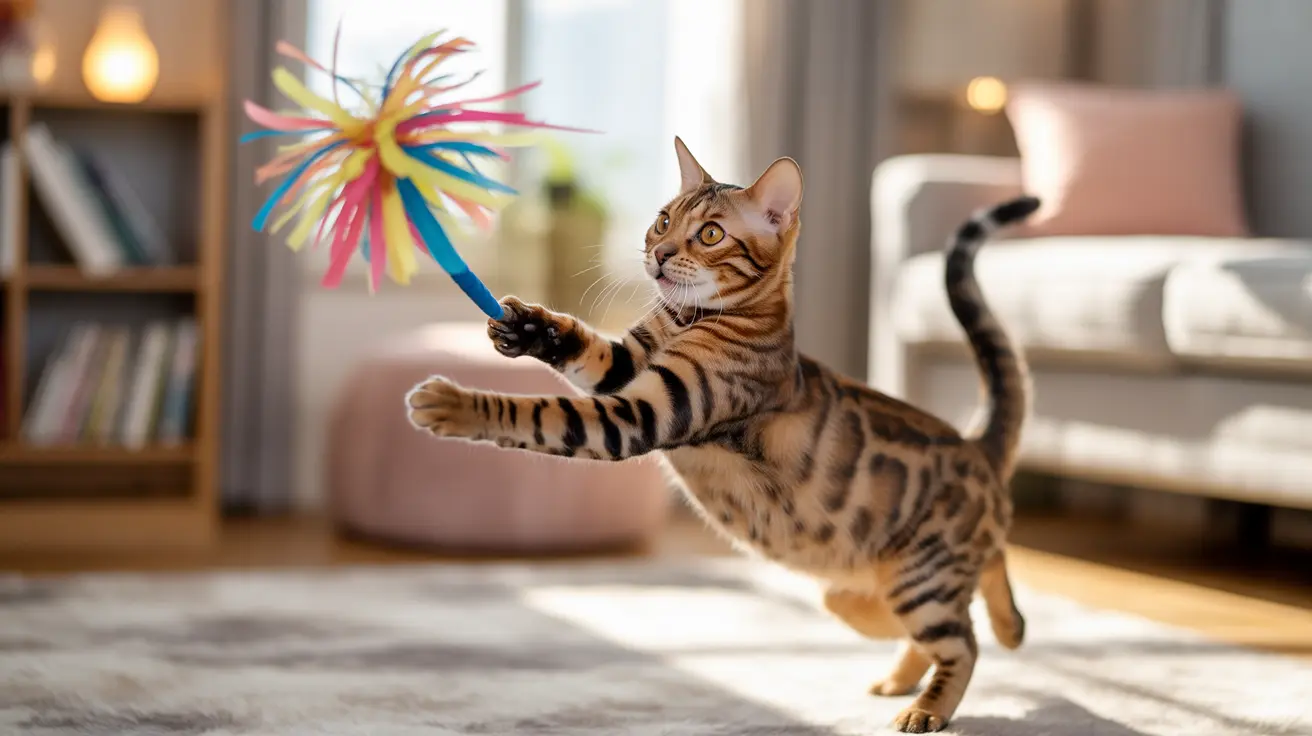Signs Your Cat Is Experiencing Boredom
Before addressing the lack of play interest, it's important to recognize the telltale signs of feline boredom:
- Excessive sleeping beyond normal cat napping
- Destructive behavior like scratching furniture or knocking items off surfaces
- Increased vocalization or demanding attention
- Random bursts of energy (zoomies)
- Overgrooming or other repetitive behaviors
- Changes in eating habits
Understanding Why Cats Become Disengaged
Physical Health Factors
A cat's unwillingness to play often stems from physical discomfort or illness. Common health-related causes include:
- Arthritis or joint pain
- Dental problems
- Obesity
- Vision problems
- Underlying medical conditions
Environmental and Emotional Causes
Sometimes the environment itself contributes to your cat's lack of interest in play:
- Unstimulating living space
- Lack of vertical territory
- Absence of natural hunting opportunities
- Stress from household changes
- Limited social interaction
Effective Solutions for Rekindling Play Interest
Creating an Enriching Environment
Transform your cat's living space into an engaging playground:
- Install cat trees and wall-mounted perches
- Create hiding spots and exploration zones
- Provide window access with bird-watching opportunities
- Set up scratch posts in various locations
Introducing New Play Techniques
Different cats respond to different types of play stimulation:
- Use interactive wand toys that mimic prey movement
- Try food puzzle toys for mental stimulation
- Experiment with various textures and sounds
- Incorporate catnip or silver vine toys
Establishing a Routine
Structure can help encourage play behavior:
- Schedule short play sessions at consistent times
- Rotate toys regularly to maintain novelty
- Include both social and solo play opportunities
- Consider your cat's natural activity periods
When to Seek Professional Help
If your cat's disinterest in play persists despite implementing these changes, consult a veterinarian to rule out medical issues. Sometimes, working with a certified feline behaviorist can also provide valuable insights and solutions tailored to your cat's specific needs.
Frequently Asked Questions
Why is my cat bored but refuses to play with toys?
Your cat may refuse to play with toys due to physical discomfort, inappropriate toy selection, or lack of environmental enrichment. Ensure you're offering toys that match their prey drive and natural hunting instincts, and rule out any health issues with a veterinary check-up.
How can I tell if my cat's disinterest in play is due to boredom or a health issue?
Monitor changes in behavior patterns, appetite, and energy levels. If disinterest is accompanied by other symptoms like weight loss, changes in grooming habits, or mobility issues, consult a veterinarian. Pure boredom typically manifests as destructive behavior or excessive sleeping without other concerning symptoms.
What are the best ways to stimulate a bored cat that won't engage in play?
Try environmental enrichment through climbing spaces, window perches, and puzzle feeders. Introduce new toys gradually, use interactive toys that mimic prey movement, and consider short, frequent play sessions rather than longer ones.
How often should I rotate toys or change activities to prevent my cat from getting bored?
Rotate toys every few days to maintain novelty, and introduce new toys monthly. Change play locations and styles weekly to keep experiences fresh and engaging.
Can lack of social interaction make a cat bored and unwilling to play?
Yes, cats are social creatures and may become withdrawn or disinterested in play if they receive insufficient attention. Regular interactive sessions with their human family members and potentially adding a feline companion can help address social needs.






